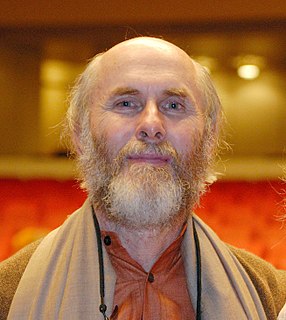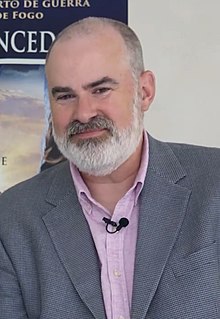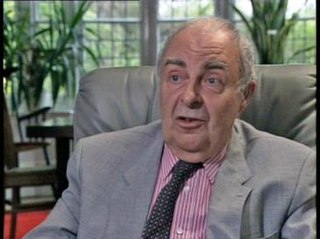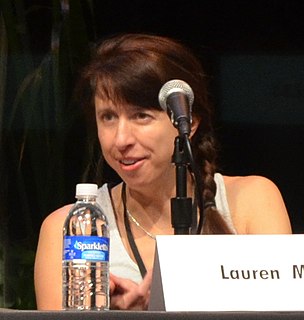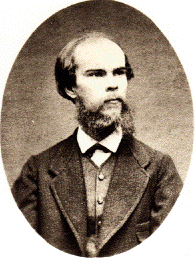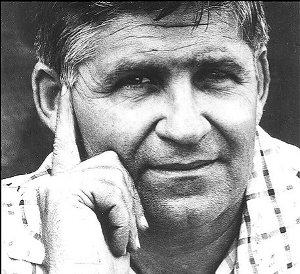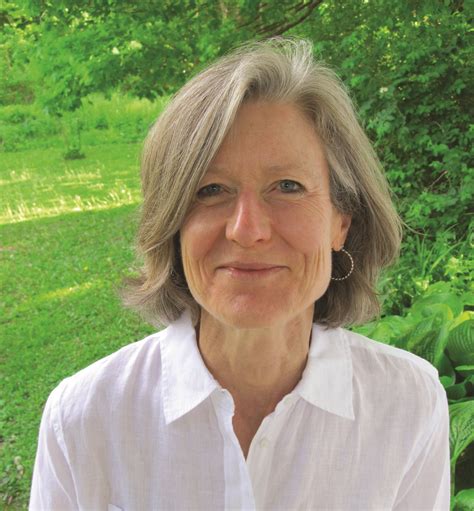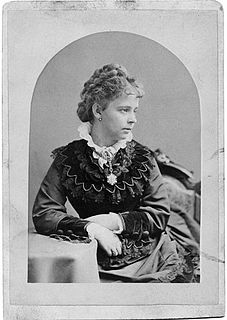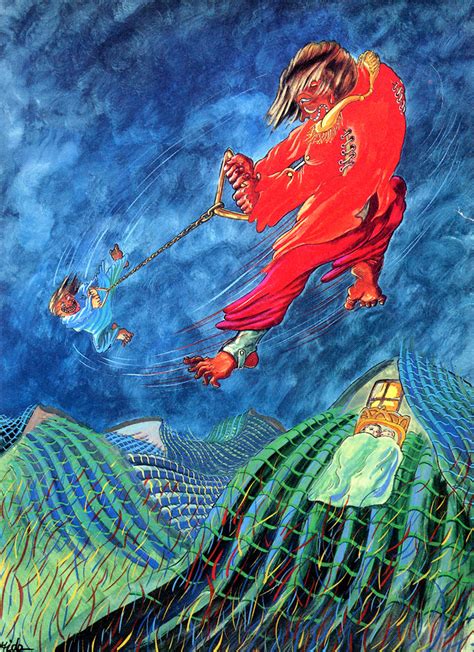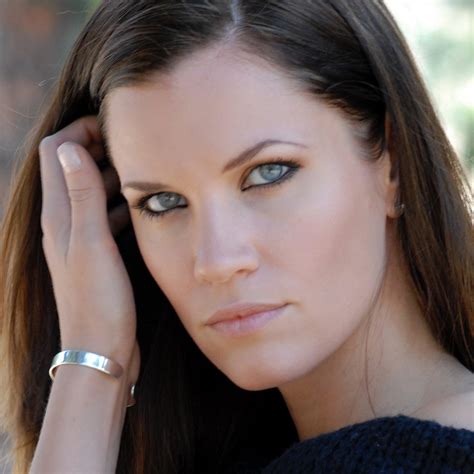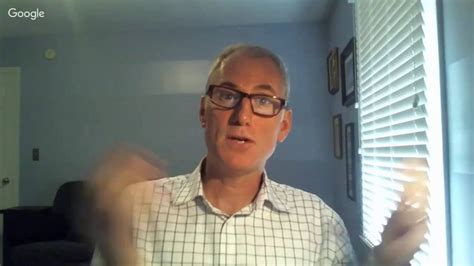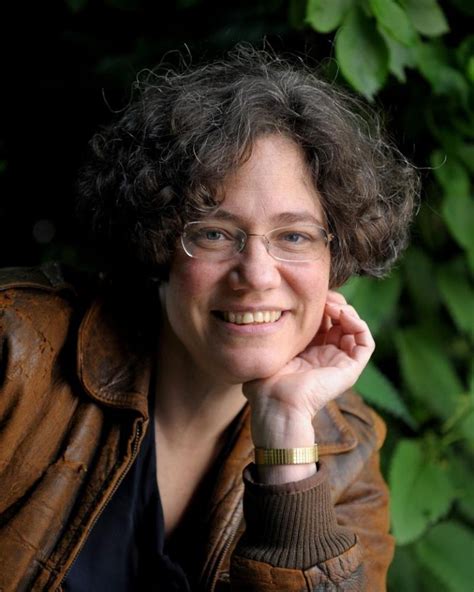Top 1200 Sad Story Quotes & Sayings - Page 19
Explore popular Sad Story quotes.
Last updated on December 11, 2024.
I think if the content is good and the content is interesting, the at home viewer will watch it for as long as the story is interesting thus the responsibility for making the story interesting falls on the shoulders of the reporter or the producer. Then I'm disappointed that producers have felt that television can only be told in 59 second story bursts because we've become, it's become journalism based on MTV, video electronic editing and cutting.
The story of slavery is everybody's story. It is the story about how we're all shaped by, regardless of race, regardless of how long we've been in this country. We hope that we can be a factor to both educate America around this subject but maybe more importantly help Americans finally wrestle with this, talk about it, debate it, because only through that conversation can we ever find the reconciliation healing that I think we all want.
An interesting example is that the worst woman in the book, who is so cruel and violent, is the sorceress in "The Prince of the Black Islands." She's a beautiful young woman, and she has turned her husband into stone from the waist down. A traveling sultan finds him, in his dreadful state, and the man petrified from the waist down tells his sad story...how his wife comes every afternoon and beats him until the blood runs down. She's just unwontedly, arbitrarily cruel.
We need to have profound compassion for the people who are dealing with the very real issue of sexual dysfunction in their life, and sexual identity disorders. This is a very real issue. It's not funny, it's sad. Any of you who have members of your family that are in the lifestyle-we have a member of our family that is. This is not funny. It's a very sad life. It's part of Satan, I think, to say this is gay. It's anything but gay.
You and I both know there's got to be some greater storyline for you than 'girl gets heart broken, was sad forever'. I think a nice one would be 'girl gets heart broken, was sad for a while but in her heartbreak she found freedom, friends, and the ability to look back and laugh at all she'd learned. She now lives her life on her own terms and still has fantastic hair.'
So often we try to make other people feel better by minimizing their pain, by telling them that it will get better (which it will) or that there are worse things in the world (which there are). But that's not what I actually needed. What I actually needed was for someone to tell me that it hurt because it mattered. I have found this very useful to think about over the years, and I find that it is a lot easier and more bearable to be sad when you aren't constantly berating yourself for being sad.
I'll give you the sole secret of short-story writing, and here it is: Rule 1. Write stories that please yourself. There is no rule 2. The technical points you can get from Bliss Perry. If you can't write a story that pleases yourself, you will never please the public. But in writing the story forget the public.
You didn't plan to write a story; it just happened. Well, it could be argued that the next thing you should do is find a hole to dig. Right? So you start digging a hole and then somebody brings a body along and puts it in. That's what a story must feel like to me. It's not that you say, "I want to write a story about a gravedigger." But you're walking along and "I don't know what I'm doing here in this story,' and - boop! a shovel. "Oh, interesting. Ok, what does one do with a shovel? Digs a hole. Why? I don't know yet. Dig the hole! Oh, look a body."
You're sad-looking," she said. "My grandson used to be such a happy boy. He used to write me stories. I remember the first story he ever wrote me, 'Once upon a time, there was a boy.' And that became 'Once upon a time there was a boy who wanted to fly.' And they kept getting better and better over time. I never found out if the boy got to fly." I gave her a small smile. If only she knew the boy's wings had been clipped.
Your soul is a chosen landscape Where charming masked and costumed figures go Playing the lute and dancing and almost Sad beneath their fantastic disguises. All sing in a minor key Of all-conquering love and careless fortune They do not seem to believe in their happiness And their song mingles with the moonlight. The still moonlight, sad and beautiful, Which gives the birds to dream in the trees And makes the fountain sprays sob in ecstasy, The tall, slender fountain sprays among the marble statues.
Each of us is born with a series of built-in confusions that are probably somehow Darwinian. These are: (1) we're central to the universe (that is, our personal story is the main and most interesting story, the only story, really); (2) we're separate from the universe (there's US and then, out there, all that other junk - dogs and swing-sets, and the State of Nebraska and low-hanging clouds and, you know, other people), and (3) we're permanent (death is real, o.k., sure - for you, but not for me).
The Negro. The South. These are the details. The real story is the universal one of men who destroy the souls of other men (and in the process destroy themselves) for reasons neither really understands. It is the story of the persecuted, the defrauded, the feared, and detested. I could have been a Jew in Germany, a Mexican in a number of states, or a member of any 'inferior' group. Only the details would have differed. The story would be the same.
It thought about the magic that happens when you tell a story right, and everybody who hears it not only loves the story, but they love you a little bit, too, for telling it so well. Like I love Ms. Washington, in spite of myself, the first time I heard her. When you hear somebody read a story well, you can't help but think there's some good inside them, even if you don't know them.
One of the great tragedies of life, it seems to me, is when a person classifies himself as someone who has no talents or gifts. When, in disgust or discouragement, we allow ourselves to reach depressive levels of despair because of our demeaning self-appraisal, it is a sad day for us and a sad day in the eyes of God. For us to conclude that we have no gifts when we judge ourselves by stature, intelligence, grade-point average, wealth, power, position, or external appearance is not only unfair but unreasonable.
By the year 1670, wooden chimneys and log houses of the Plymouth and Bay colonies were replaced by more sightly houses of two stories, which were frequently built with the second story jutting out a foot or two over the first, and sometimes with the attic story still further extending over the second story.
Independent films are very hard to get made, but I'm lucky enough to get them made, so I'm going to keep doing it. I like my independence. I like being able to tell a story the way I want to tell a story. I don't like developing it with a team. I like coming to a story and deciding whether I want to do it or not.
The burning of a book is a sad, sad sight, for even though a book is nothing but ink and paper, it feels as if the ideas contained in the book are disappearing as the pages turn to ashes and the cover and binding--which is the term for the stitching and glue that holds the pages together--blacken and curl as the flames do their wicked work. When someone is burning a book, they are showing utter contempt for all of the thinking that produced its ideas, all of the labor that went into its words and sentences, and all of the trouble that befell the author . . .








